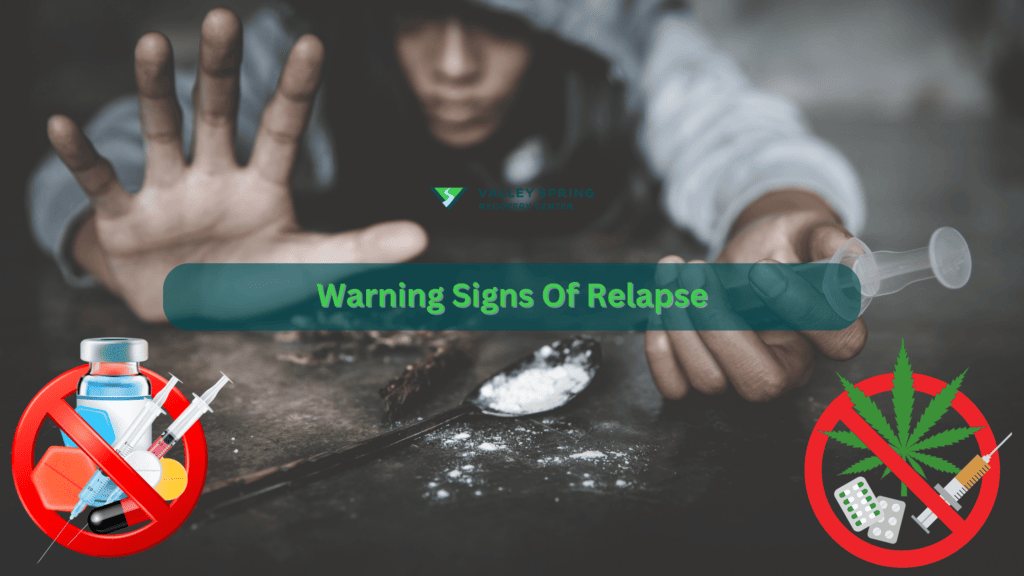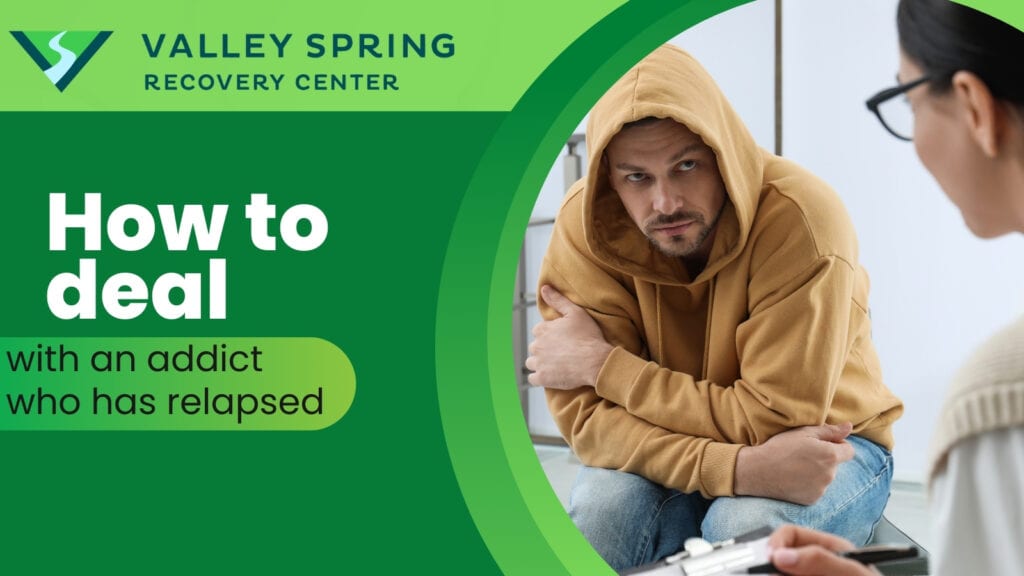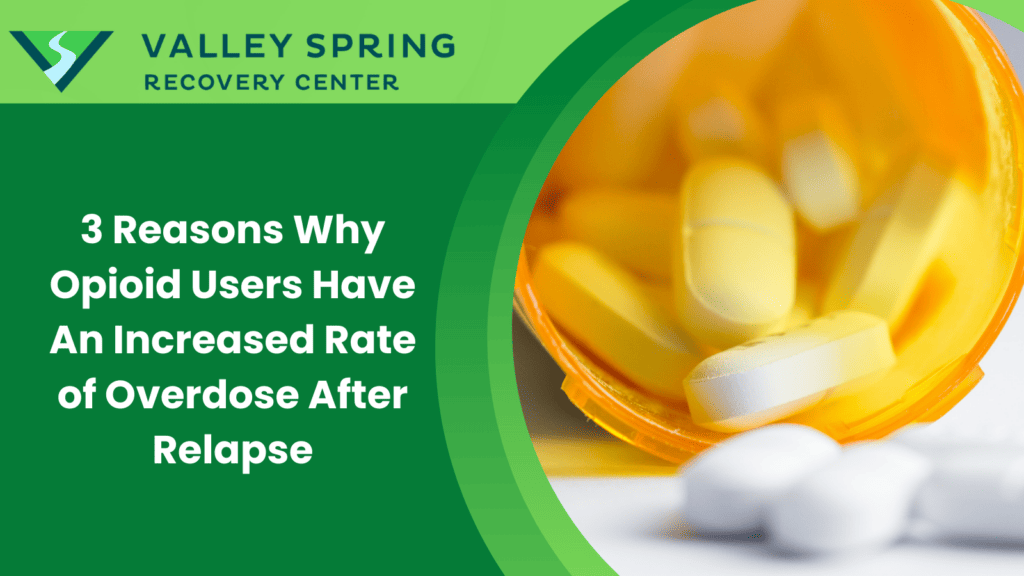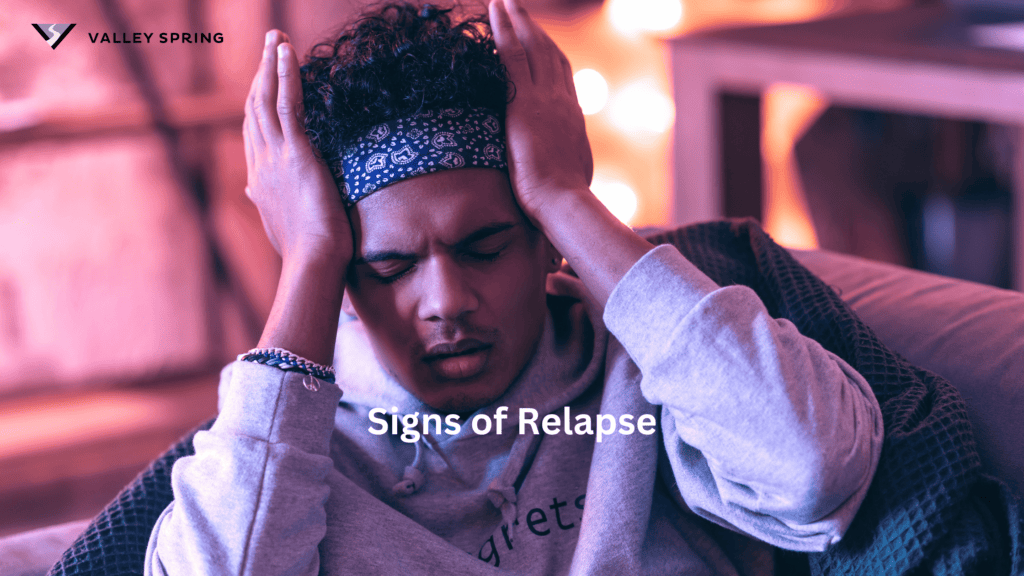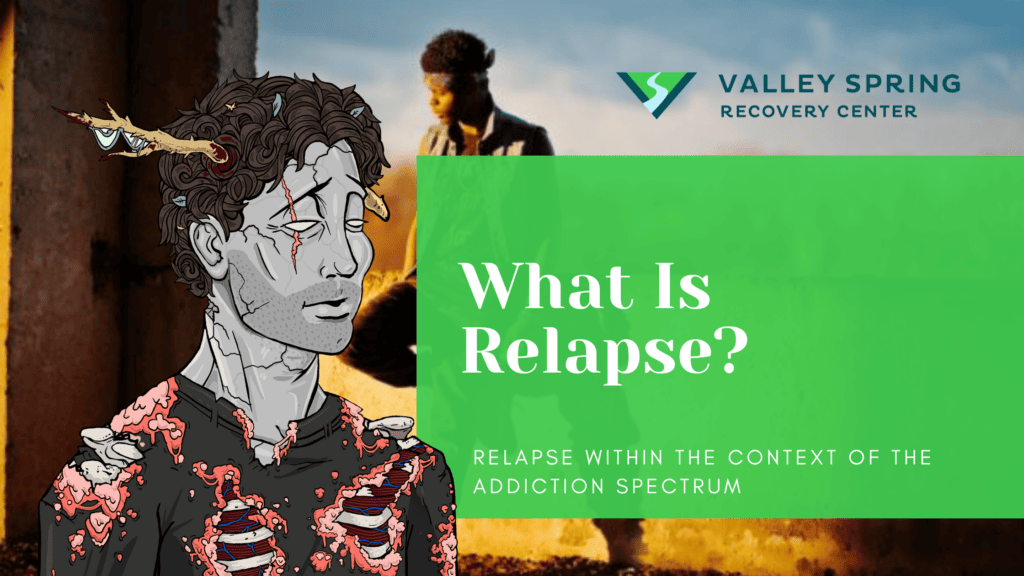Relapse is the act of falling into old negative habits and it doesn’t just happen overnight. Relapse usually happens weeks or months before the actual act of relapsing occurs. Imagine having a roadmap to navigate the complex recovery journey, identifying potential pitfalls, and knowing exactly how to handle them. Recognizing essential relapse warning signs is that roadmap, and being aware of these signs can mean the difference between a successful recovery and a devastating relapse. Let’s dive into the world of relapse prevention and explore the warning signs to watch out for, helping you or your loved one stay on the path to long-term sobriety.
Key Takeaways
Recognize the three phases of relapse and identify early warning signs to prevent Complications.
Establish support networks, practice healthy coping skills and create a comprehensive relapse prevention plan.
If a relapse occurs, take prompt action by seeking professional help, acknowledging it honestly and reevaluating/adjusting your plan accordingly.
The Three Phases of Relapse
The relapse process is not a single event, but rather consists of three distinct stages: emotional, mental, and physical relapse, each with its own set of warning signs and challenges. Comprehending these stages is key to avoiding relapse and sustaining sobriety.
The journey to recovery is often filled with ups and downs, but being aware of the signs and knowing when to seek help can make all the difference.
Emotional Relapse
Emotional relapse is the first stage, characterized by stress, emotional turmoil, and unhealthy coping mechanisms. Identifying the escalation of emotions and behaviors during this stage proves beneficial. Individuals can alter their behavior, strive to maintain a positive outlook, prioritize self-care, and participate in recovery activities to prevent emotional relapse.
Tackling emotional relapse is pivotal, as neglecting it can pave the way for the following stages of mental and physical relapse.
Mental Relapse
Mental relapse is the stage where thoughts and fantasies about substance use creep in, along with the planning and rationalization of a return to addictive behaviors, such as drug abuse. This stage is marked by engaging in internal conflict regarding the use of drugs or alcohol, increasing contemplation of use, and experiencing a compulsion to escape.
Acknowledging “euphoric recall,” the reminiscence of solely the positive aspects of substance use, is key as it can trigger a mental relapse by leading a person to disregard the negative impacts of their previous use.
It’s during this third and final stage that the individual is in a high-risk situation and must reach out for help to avoid progressing to the final stage of relapse.
Physical Relapse
Physical relapse, the final stage, is the resumption of drug or alcohol use, ranging from a one-time slip to a full-blown return to addiction. Recognizing changes in physical appearance can be a strong indicator of when a physical relapse occurs.
In the event of a physical relapse, seeking help quickly is necessary to disrupt the cycle of active addiction. The distinction between physical relapse and a lapse is important to understand, as a lapse is a single incident of use, while a relapse involves a reversion to an uncontrollable pattern of substance abuse.
Recognizing Early Relapse Warning Signs

Identifying early warning signs of relapse is a vital element of sustaining sobriety and avoiding drawbacks. Being aware of potential issues before they become more serious can allow individuals to address them promptly and prevent further escalation.
Some common warning signs of relapse include:
Social isolation
Neglecting self-care
Changes in mood and mental health struggles
Engaging in risky behaviors
Minimizing the consequences of relapse
Being alert to these warning signs, especially during the early stages of recovery, is of utmost importance.
Social Isolation
Social isolation can significantly increase the risk of relapse. Withdrawing from support networks and recovery activities can leave individuals feeling lost and alone, making it more challenging to maintain sobriety. Steering clear of family and friends, canceling therapy sessions, or abstaining from social activities are signs of isolation that may be associated with a relapse.
Loved ones should reach out to the individual in recovery to ensure they are receiving adequate support if they suspect they are isolating themselves.
Neglecting Self-Care
Neglecting self-care, including personal hygiene and mental health, can signal that an individual is struggling in their recovery. Disregarding self-care can result in physical manifestations of stress, such as decreased sleep, fatigue, and increased anxiety.
Recognizing that poor self-care can signal difficulties in recovery and potential relapse is important, underlining the need to tackle any issues promptly and seek support when required.
Mood Changes and Mental Health Struggles
Mood changes and mental health struggles, such as depression and anxiety, can contribute to the risk of relapse. Sudden alterations in mood or emotional state may indicate the presence of underlying mental health issues that need to be addressed.
Hormonal changes, blood sugar levels, stress, and exhaustion can all be factors that lead to changes in mood. Monitoring mood changes is significant as they may indicate the presence of underlying mental health issues that require professional help.
Risky Behaviors and Triggers

Engaging in risky behaviors and exposing oneself to triggers can increase the likelihood of relapse. Triggers can be specific situations, emotions, or memories that evoke intense emotional reactions or behaviors, leading to a heightened risk of relapse.
Identifying and tackling these risky behaviors and triggers is key to preventing relapse and achieving long-term recovery.
Reconnecting with Old Friends Who Use
Reconnecting with old friends who still use substances, including those involved in alcohol abuse, can create a tempting environment for addiction relapse. Exposure to friends who use substances can present a heightened risk of relapse, as it can evoke powerful urges and cravings that can be difficult to resist.
Setting boundaries when reconnecting with old acquaintances who use substances and being open about your recovery journey is crucial, as well as formulating a strategy to deal with any possible relapse triggers.
Developing Cross Addictions
Developing cross addictions, or replacing one addiction with another, can be a sign of unresolved issues and potential relapse. Cross addictions can involve substances such as alcohol, drugs, or even behaviors such as gambling or overeating.
Recognizing the potential for cross addictions can signal unresolved issues and a higher risk of relapse, emphasizing the need to be cautious of this danger and to request help and treatment as needed.
Minimizing the Consequences of Relapse
Minimizing the consequences of relapse, such as downplaying the risks of “just one drink” or “just one hit,” can lead to a dangerous mindset. Partaking in just one drink or one hit is a risky endeavor, as it can lead to a physical relapse.
Acknowledging the possible repercussions of relapse and implementing an effective relapse prevention plan can aid in dodging setbacks and sustaining sobriety.
Creating a Relapse Prevention Plan
A comprehensive, proper relapse prevention plan can help individuals maintain their recovery and avoid potential pitfalls. By recognizing personal triggers, relying on support networks, and utilizing healthy coping skills, individuals can develop a plan that promotes long-term sobriety and prevents future relapse.
Identifying Personal Triggers

Recognizing personal triggers, such as particular situations or emotions, can aid individuals in devising coping strategies effectively. Some examples of personal triggers include:
Being in a crowded or noisy environment
Feeling overwhelmed or stressed
Experiencing conflict or arguments
Feeling lonely or isolated
Recognizing and understanding these triggers can allow individuals to address them proactively and prevent relapse.
Keeping a journal, engaging in visualization and mindfulness meditation, and consulting a therapist can be beneficial in identifying personal triggers.
Utilizing Support Networks
Utilizing support networks, including friends, family, and recovery groups, can provide valuable encouragement and accountability. Support networks can also create a secure environment to discuss difficult topics and feelings, which can aid individuals in processing their emotions and gaining understanding into their behavior.
Engaging with support networks, such as recovery meetings, can help individuals stay focused on their addiction recovery objectives and prevent relapse.
Practicing Healthy Coping Skills
Practicing healthy coping skills, such as exercise, meditation, and therapy, can help individuals manage stress and emotions without resorting to substance use. Incorporating these healthy coping skills into daily life can assist in managing stress and emotions in a constructive manner, thereby decreasing the likelihood of relapse.
Finding enjoyable and sustainable activities and dedicating daily time to practicing them is key to sustaining ongoing recovery in the long term.
What to Do if You’ve Relapsed
In the event of a relapse, taking prompt action and addressing the situation is crucial. Recognizing the relapse, seeking professional help, and reevaluating the relapse prevention plan are crucial steps to getting back on track.
A relapse does not signify failure; it’s an opportunity to learn, grow, and strengthen the commitment to recovery.
Acknowledging the Relapse
Recognizing the relapse and accepting responsibility for one’s actions marks the first step towards recovery. It’s essential to be honest with oneself and recognize the slip-ups, as well as take the necessary steps to address any underlying issues that may have contributed to the relapse.
Taking ownership of one’s mistakes is a crucial part of the recovery process. It is.
Seeking Professional Help

Seeking professional help, such as therapy or addiction treatment, can provide the necessary support and guidance to get back on track. Engaging with professionals who are knowledgeable in addressing relapse and addiction can help individuals regain control and address any underlying issues that might be contributing to the relapse.
Reevaluating and Adjusting the Relapse Prevention Plan
Assessing and tweaking the relapse prevention plan can aid individuals in:
Identifying areas that need improvement
Creating new strategies to uphold their recovery
Reflecting on the effectiveness of existing coping skills
Reassessing motivation
By making necessary changes to their prevention plan, individuals can promote long-term sobriety and prevent future relapse.
Summary
Recognizing relapse warning signs is a crucial aspect of maintaining sobriety and preventing setbacks. By understanding the three phases of relapse, identifying early warning signs, addressing risky behaviors and triggers, and creating a comprehensive relapse prevention plan, individuals can navigate the complex recovery journey with confidence. Remember, a relapse does not signify failure; it’s an opportunity to learn, grow, and strengthen the commitment to recovery.
Frequently Asked Questions
What are early signs of relapse?
Early signs of relapse include glamorizing past drug or alcohol use, a false sense of control over use, hanging around old people and places associated with past use, sudden changes in behavior, isolation, not going to meetings, not engaging in sober fun, and doubting the recovery process. There are also stages of relapse that denote the different levels of urgency in which the relapse might occur.
Can you feel a relapse coming?
If you’re experiencing any signs of distress or notice a decrease in mental wellbeing, it may be a sign that you’re heading towards a relapse.
Pay attention to your feelings and take necessary steps to take care of yourself.
What is the importance of a relapse prevention plan?
Relapse prevention plans are essential for aiding individuals in regaining control and avoiding future relapse, providing necessary support and guidance.
How can support networks help in preventing relapse?
Having a strong support network of friends, family, and recovery groups provides individuals with encouragement and accountability to maintain their recovery goals and prevent relapse.
What steps should be taken if a relapse occurs?
If a relapse occurs, acknowledge it, seek professional help, and adjust the prevention plan accordingly.
Ben Fisher
All author postsShare This Post

